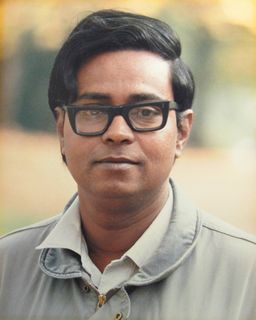by WIJE DIAS
 Keerthi Balasuriya
Keerthi Balasuriya
Keerthi Balasuriya, the founding general secretary of the Revolutionary Communist League (RCL), the Sri Lankan section of the International Committee of the Fourth International (ICFI), died of a sudden heart attack at the age of just 39 on December 18, 1987. His untimely demise cut short a life consciously devoted for more than two decades to the struggle to revive the revolutionary strategy of proletarian internationalism among workers and the oppressed masses in Sri Lanka and throughout the region. The RCL was the forerunner of the Socialist Equality Party (SEP).
On the day of his death, Comrade Keerthi was drafting a document for the ICFI, clarifying the political tasks confronting the world Trotskyist movement in the aftermath of the 1985-86 split with the renegades of the British Workers Revolutionary Party (WRP). He was concentrating in particular on the issues posed for the RCL and the working class throughout South Asia, in the wake of India’s military-political intervention in Sri Lanka from July 1987.
In an obituary written at the time, Workers League National Secretary David North stated: “Despite all the immense political pressures confronting the Revolutionary Communist League in Sri Lanka, Comrade Keerthi would not be deterred from his international responsibilities as a leader of the International Committee of the Fourth International. The great political ideal which inspired all his works was the cause of proletarian internationalism, which for Comrade Keerthi, found its supreme expression in the struggle to build the world party of socialist revolution.”
Addressing the hundreds of workers and youth at Keerthi’s funeral, North emphasised the enormous significance of his role: “In the period immediately ahead, the workers, not only in Asia but throughout the world, will read and study the writings of Comrade Keerthi.”
The upsurge of the class struggle today, driven by the ongoing breakdown of global capitalism since 2008, has underlined the necessity of studying the profound theoretical and political contribution made by Keerthi Balasuriya. Whether in North Africa or the Middle East, in the historically backward and the advanced countries of the world, the urgent need is to resolve the crisis of leadership of the working class on the basis of Leon Trotsky’s Theory of Permanent Revolution.
Keerthi joined a radicalised group of youth in early 1966 that was looking to overcome the political problems and confusion generated by the historic betrayal of the Lanka Sama Samaja Party (LSSP) in 1964. The LSSP was the first party in the world calling itself Trotsky ist to join a capitalist government when it entered a coalition with the ruling Sri Lanka Freedom Party (SLFP) of Madame Sirima Bandaranaike.
This betrayal took place at a time when the working class and youth were moving into a struggle of revolutionary proportions against the SLFP government. The major trade union federations, in both government and private sectors, had formed a common front called the Joint Committee of Trade Union Organisations (JCTUO) and were threatening industrial action if their list of 21 demands was not met by the government. Young people were being radicalised. University students were protesting against the Vietnam War and the murder of Patrice Lumumba of Congo as well as in support of the workers’ struggles and against the attacks on free education.
